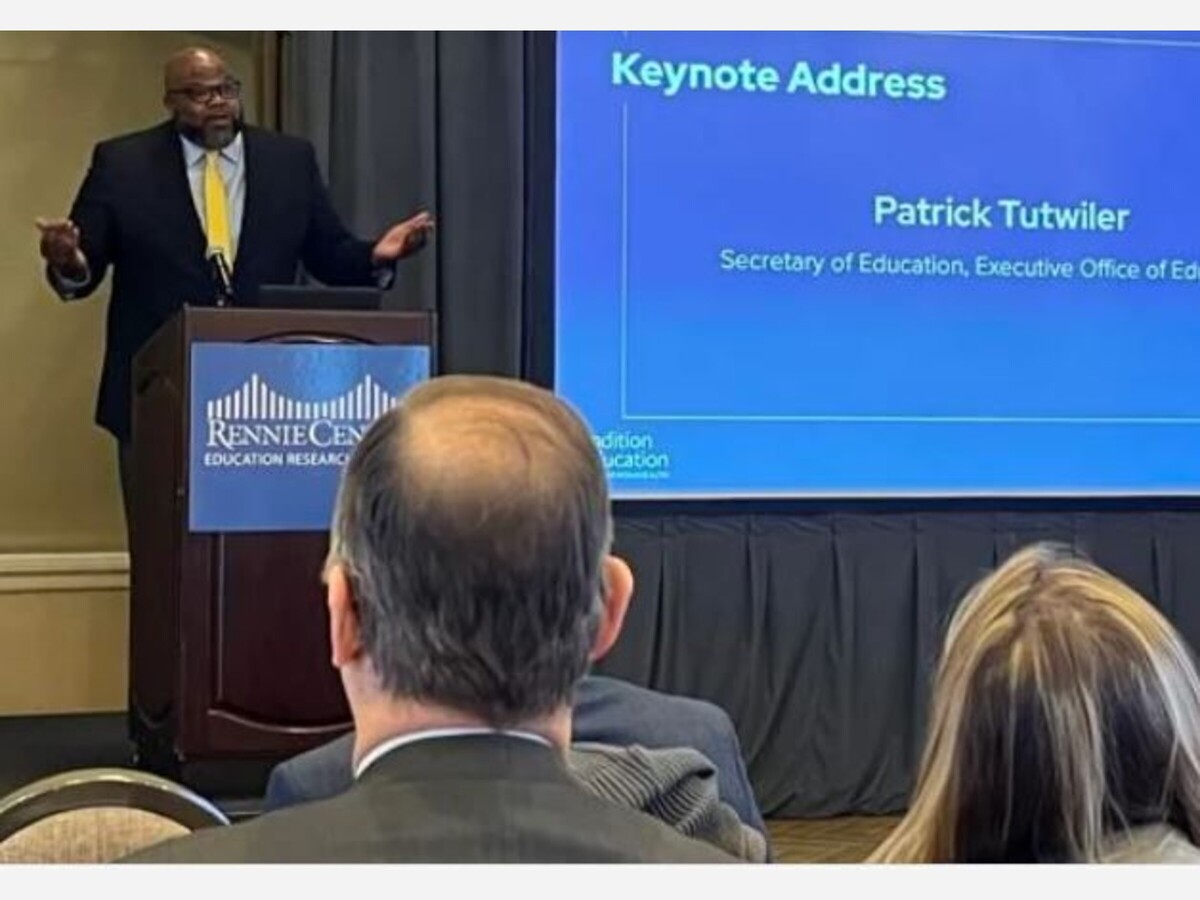Image

Education Secretary Patrick Tutwiler gives his "Condition on Education" speech at the Omni Parker Hotel in Boston on Tuesday, Jan. 30.
State education officials are praising Gov. Maura Healey's new proposal to invest in early education literacy, as students here and across the country continue to struggle behind reading expectations.
On last year's state testing, just 41 percent of third through eighth graders scored in the "meeting or exceeding expectations" range for English Language Arts. The Department of Elementary and Secondary Education said that grades three through five showed sharper declines than grades six through eight, "indicating challenges in early literacy."
Addressing the reading challenges in young students has been a priority for the department over the last two years as schools work to recover from pandemic-related learning losses.
Healey's recent announcement that she proposed a $30 million "Literacy Launch" program to get higher-quality literacy materials into dozens of districts was met with enthusiasm from both the state's education board and commissioners.
"We have not been effectively teaching reading, as a country, for a long time. We now know, as the evidence says ... we have to teach in a different way, in an evidence-based way," DESE Commissioner Jeff Riley said at an "Condition of Education" event on Tuesday morning.
The administration's goal is to support 45 school districts in the first year of "Literacy Launch" to convert their reading materials to "high-quality curriculum material," Secretary of Education Patrick Tutwiler said on Tuesday. Their focus is on pre-K to third grade students.
In addition to those grants, the secretariat plans to allow districts to adopt a DESE-developed, free evidence-based literacy curriculum called Appleseeds to supplement schools' current curriculum materials.
"If we provide districts with the support that they need, and the funding necessary to adopt these best practices, we can work together to make long-term changes in literacy practices across the commonwealth," Tutwiler said during his state of education address.
Education advocates at Tuesday's event voiced their support for the idea, but the chair of Massachusetts' K-12 board seemed somewhat skeptical about the proposal's future last week.
"The governor's coming out with a $30 million proposal -- that's going to take a long time to get the money in a 9C environment," said Board of Elementary and Secondary Education Chair Katherine Craven at a board meeting last Tuesday, referencing budget cuts -- called 9C cuts -- the governor made earlier this month.
Healey cut $375 million in spending and tapped other revenue sources to fill a $1 billion budget gap on Jan. 8, the first midyear budget cuts since 2016. Some have warned that lawmakers should pull back on new spending items as the state gets a handle on slowing tax collections and an inflated budget.
The administration sees "Literacy Launch" as a five-year program, of which the $30 million investment included in Healey's fiscal 2025 budget would cover the first year.
An Executive Office of Education spokesperson said the administration is not currently planning future growth of the program that would require more than $30 million per year.
Additionally, this school year all districts are also required to use literacy screeners in kindergarten through third grade, and educator prep programs will be required to train elementary teachers in evidence-based strategies for literacy, Tutwiler said.